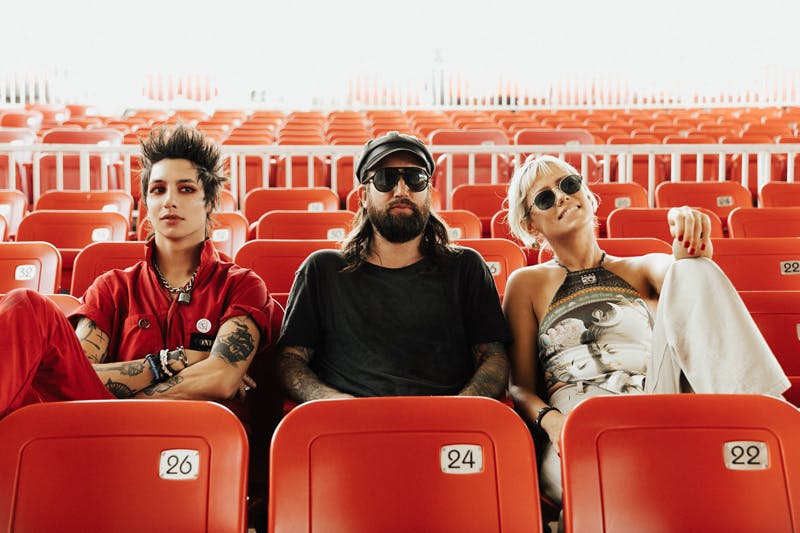Tomorrow, Warped Tour rolls through Cleveland, Ohio for one of only three dates in 2019, having ceased being a summer-long affair travelling all throughout the U.S. and Canada last year. Warped, as we used to know and love it, is no more, but that's no reason not to celebrate a quarter of a century's legacy.
• Visit the official Kerrang! Ticket Store
It's no exaggeration to say that Warped Tour has helped put countless Kerrang! stars on the map. Without Kevin Lyman's annual summer roadshow, bands like My Chemical Romance, Fall Out Boy, Paramore and Black Veil Brides simply would not have had the impact, influence or success they've had. Without Warped, some may not have even made it beyond their first few shows.
Where else would you find Every Time I Die's Keith Buckley, Tonight Alive's Jenna McDougall and Palaye Royale's Remington Leith hanging out and shooting the shit? Outside of Warped Tour there's little else that unites these bands, with each vocalist's entry point, experience and insight being very different. Each represent a different generation of Warped, embodying its spirit of inclusiveness and diversity. So what better excuse to sit them down and grill 'em all about their experiences on the final full-summer run in 2018, and what the absence of that staple from the rock landscape might mean long-term...
What do you remember about your first Warped Tour?
Keith Buckley (Every Time I Die): "I was super-young when I went and I was really intimidated by everybody, but when you walk into that magical realm you're like, 'Well, this is where I need to be for the rest of my life.' I didn't mean that literally, but now I feel like I have been doing this for my entire life!"
Jenna McDougall (Tonight Alive): "I was a Warped Tour fan by correspondence. Being from Australia, we didn't have the chance to go as ticket holders, so it was even more far-out as 20-year-olds to go over fresh out of high school and play it. Having said that, I actually don't remember anything about playing our first Warped Tour, because I was so young and starry-eyed!"
Remington Leith (Palaye Royale): "I can count on one hand how many people were in front of our stage every single day the first time. Then we ended up playing to huge crowds who know our lyrics. Warped Tour helped us really expand our audience. In 2014 we got a chance to play one show because we won a battle of the bands - we played when the doors opened and it was the coolest experience of my life."
Keith: "I watched you guys that day ... "
